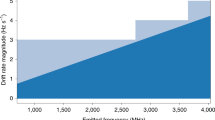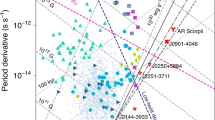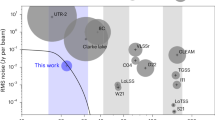Abstract
Dent and Haddock1 have investigated the high-frequency part of the NGC 1275 spectrum and found that the flux density increases between 3 and 10 GHz by about a factor of two.
This is a preview of subscription content, access via your institution
Access options
Subscribe to this journal
Receive 51 print issues and online access
$199.00 per year
only $3.90 per issue
Buy this article
- Purchase on Springer Link
- Instant access to full article PDF
Prices may be subject to local taxes which are calculated during checkout
Similar content being viewed by others
References
Dent, W. A., and Haddock, F. T. (preceding communication).
Lynds, C. R., and Sobiesky, S., Publ. Nat. Rad. Astro. Obs., 1, 155 (1961).
Leslie, P. R. R., and Elsmore, B., Observatory, 81, 14 (1961).
Heeschen, D. S., and Meredith, B. L., Publ. NRAO, 1, 121 (1961).
Baars, J. W. M., Mezger, P. G., and Wendker, H. (in the press).
Author information
Authors and Affiliations
Rights and permissions
About this article
Cite this article
BAARS, J., MEZGER, P. & WENDKER, H. A Radio Investigation of NGC 1265 and NGC 1275. Nature 205, 488–489 (1965). https://doi.org/10.1038/205488a0
Published:
Issue Date:
DOI: https://doi.org/10.1038/205488a0
This article is cited by
-
Aktive galaxien
Die Naturwissenschaften (1975)
-
On the Origin of the Microwave Background Radiation
Nature (1966)
-
Low-frequency Spectrum from Radio Source 3C84
Nature (1966)
-
Structure of Quasi-stellar Radio Sources
Nature (1965)
-
Spectrum of Low-frequency Radio Emission from NGC 1275
Nature (1965)
Comments
By submitting a comment you agree to abide by our Terms and Community Guidelines. If you find something abusive or that does not comply with our terms or guidelines please flag it as inappropriate.



